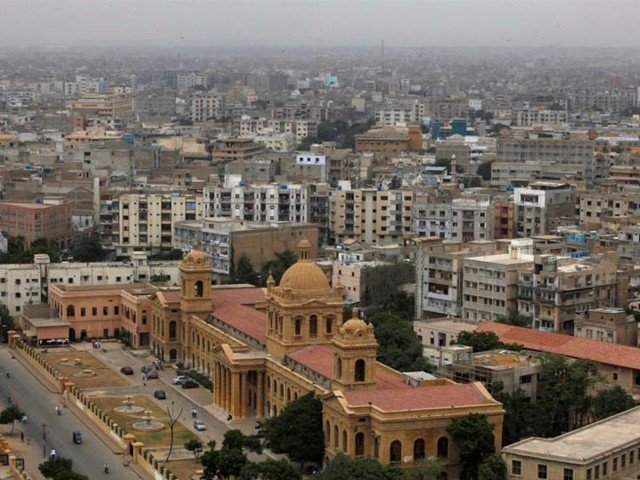Karachi: governance is the issue
If this megacity of Pakistan collapses, it will put the survival of the country at stake

PHOTO: FILE
Karachi, which is the world’s 8th largest city and Pakistan’s ‘jewel in the crown’, and contributes to 60% of the country’s revenue, is in shambles. Neither the federal nor the Sindh government depicts any ownership to the city’s ordeals. The city government blames the Centre and the Sindh governments for step-motherly treating Karachi by constantly neglecting issues which may cause a serious outbreak of violence in this megacity.
Why has the issue of governance in Karachi been allowed to take a dangerous course by federal and provincial governments? Why does the SC have to periodically intervene and issue warnings to both governments when it’s their responsibility to resume the KCR and put things in order?
The CJP-headed bench of the SC’s Karachi registry, also comprising Justice Faisal Arab and Justice Sajjad Ali Shah, upon hearing the case about the non-functional status of KCR expressed its dismay over the non-compliance of the court’s May 2019 directives to remove encroachments from KCR tracks, revive the train service and relocate the people affected by it.
Interestingly, the railways secretary and the Sindh advocate general informed the bench that federal and provincial governments were dependent on $2 billion worth of financing by the Chinese government and contractor for the revival of the 42km long KCR project. Upon this, the bench observed that if the Chinese government backed out of its commitment, “what will the government’s alternative strategy be and why was it unable to mobilise local resources?”
Unlike Lahore, Rawalpindi and Multan, where the previous government facilitated public transport by launching the metro bus service (MBS), Karachi remains deprived of a respectable, efficient and affordable transport service. The KCR, which used to cater to the needs of the city’s people from mid-1960s, stopped functioning in 2000. Taking advantage of this, the land and builder mafia occupied the land on both sides of the railway tracks and established their illegal settlements. Numerous plans in the last 20 years were prepared by the Centre as well as provincial and local governments to revive the KCR but to no avail. As a result, scores of motorcycles, rickshaws, buses and private cars ply on the roads of the city causing severe traffic jams as well as pollution. Exploitation by transporters is an additional menace. The solution to this was sought through KCR revival and introduction of MBS. While the federal government’s MBS project, the Green Line, is being completed at a slow pace, KCR’s revival is still limited to papers.
Governance is the main issue as far as Karachi’s transport, water, sewage, roads and other thorny issues are concerned. There are two major reasons to analyse why Karachi’s governance issue is becoming serious and can cause lethal damage to the city’s peace, stability and productivity. First, neither the local nor the federal or provincial governments are serious and professional in dealing with the worsening civic and governance issues of Karachi. All three stakeholders blame each other for disinterest, corruption, nepotism and thereby failure to provide efficient and affordable public transport, clean and safe drinking water, garbage disposal, sewage system, removal of encroachments and control of ‘mafias’. While it is not the SC’s job to remind and reprimand the responsible governments, it has to intervene in order to provide some relief to the people of Karachi.
Secondly, the breakdown of Karachi’s infrastructure, particularly during the monsoon rains, is a reality. In the absence of a proper sewage system, the city collapses under a heavy rain spell. In 2019, when Karachi received substantial rains, most of the roads were inundated and the city experienced long spells of power breakdown. The main reason for these problems is the lack of ownership by the wielders of power.
Since the people of Karachi have tested all major political parties, including Pakistan Tehreek-e-Insaf (PTI), it is high time for them to rethink why they are let down by such parties and whether there is some hope of an honest and committed leadership to emerge in the near future. In 1984, when the Mohajir Qaumi Movement (MQM) was launched, it swept the local bodies’ elections in Karachi held in 1987; and then from 1988 till 2013, the party won majority of the seats in the National and Provincial Assembly elections. However, even the MQM, which had grassroots-level support from Karachi and Hyderabad, failed to deliver. The fragmentation of the MQM further weakened the cause of Karachi and other urban areas of Sindh.
Regardless of the fault lines which deepen the level of frustration and antagonism amongst the people of Karachi, the city has enormous resilience. But, the real stakeholders of Karachi are its citizens who cannot bear a further breakdown in governance, due to which they also pay an annual amount of Rs23 billion to the tanker mafia for water, which is otherwise their legitimate right. The SC has given six months to the government to complete the KCR and failure to do so would be a contempt of court. This is the most the SC can do while overstretching its responsibilities. The impending summer is sure to witness a severe electricity crisis; and in case of rains in the monsoon season, the city in unlikely to escape marathon sessions of power blackouts, besides undergoing infrastructure breakdown.
It is high time that the saner elements played their role for the revival of Karachi in all respects because if this megacity of Pakistan collapses, it will put the survival of the country at stake.
Published in The Express Tribune, February 28th, 2020.
Like Opinion & Editorial on Facebook, follow @ETOpEd on Twitter to receive all updates on all our daily pieces.















COMMENTS
Comments are moderated and generally will be posted if they are on-topic and not abusive.
For more information, please see our Comments FAQ